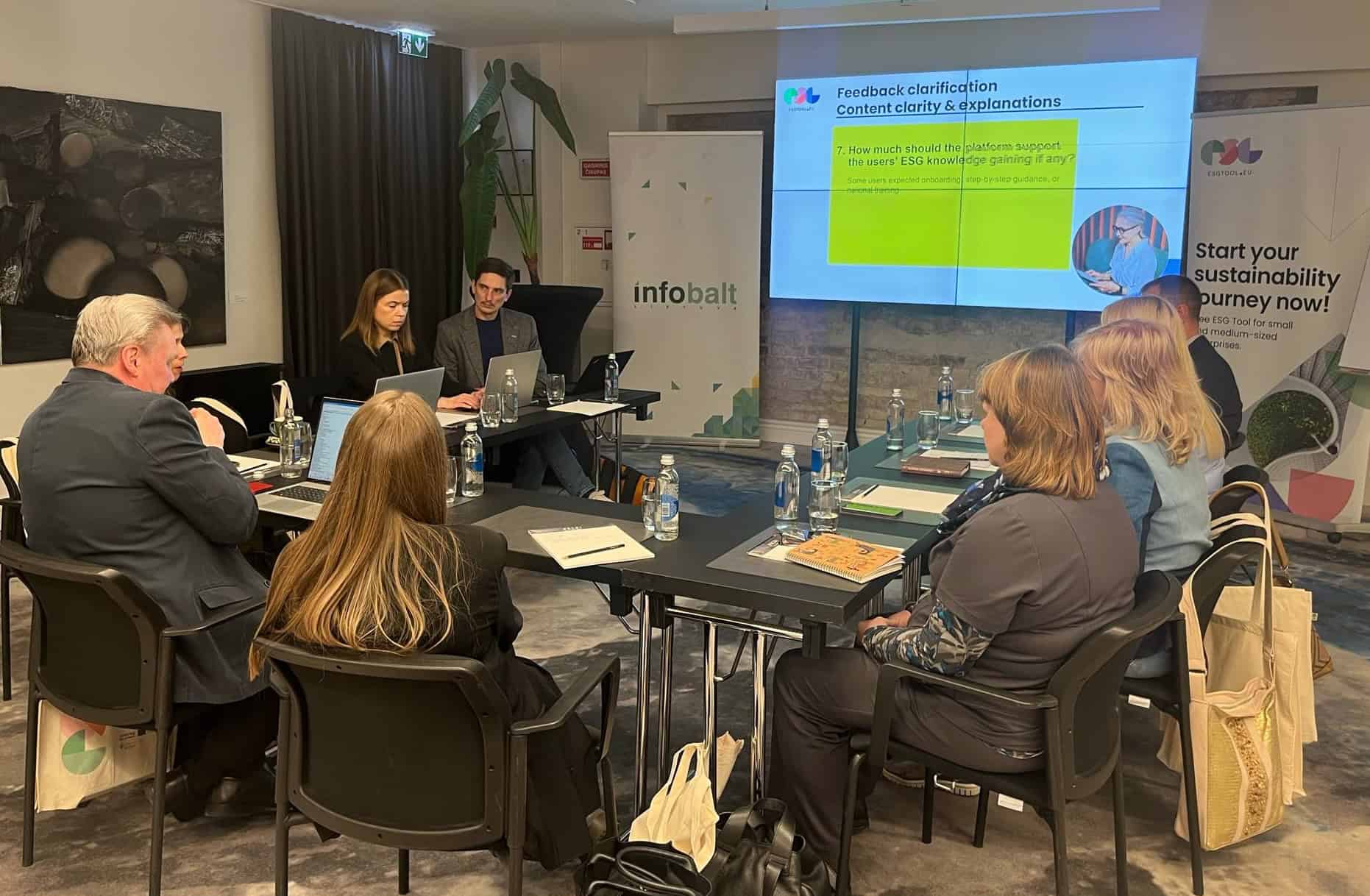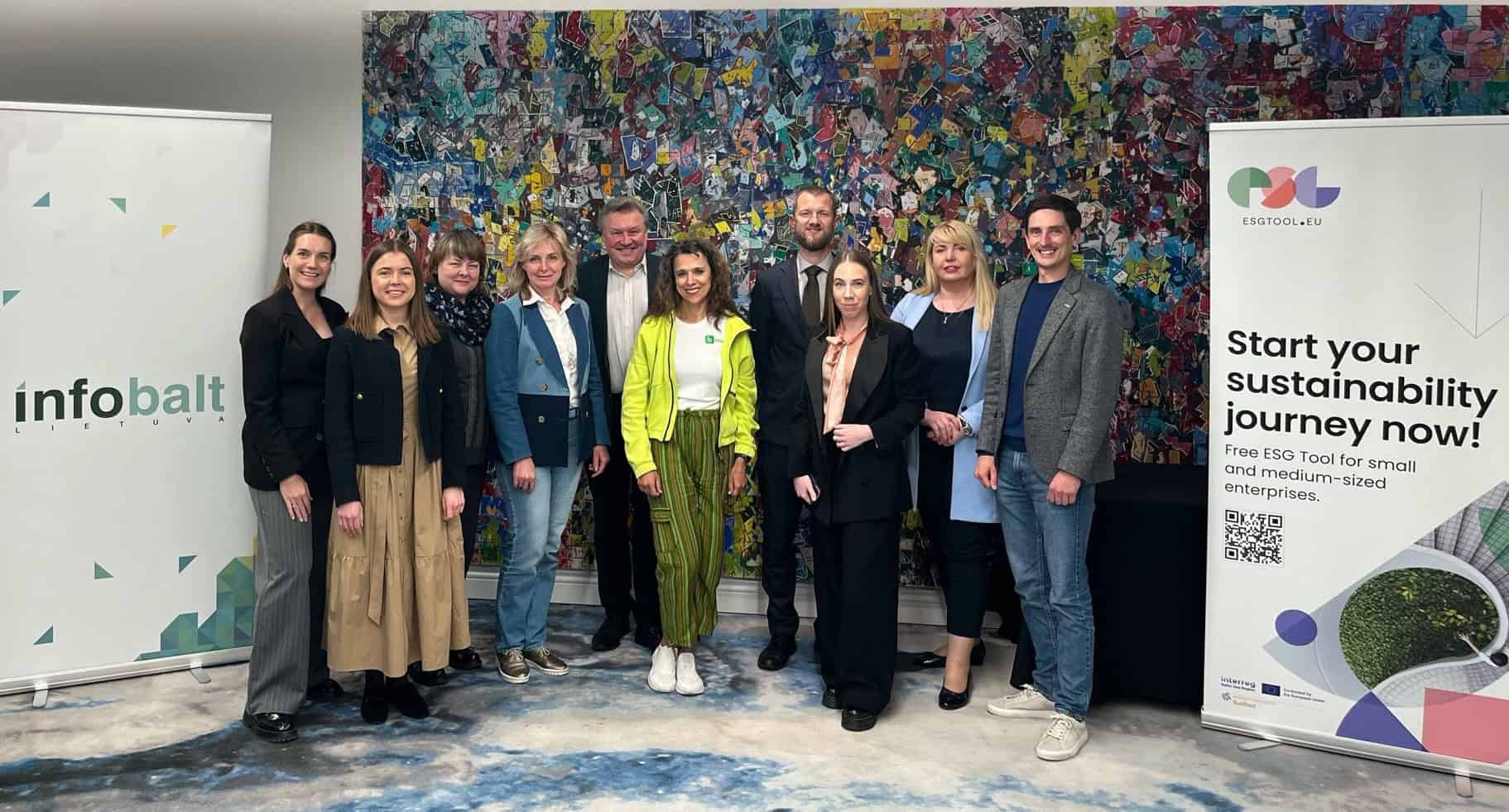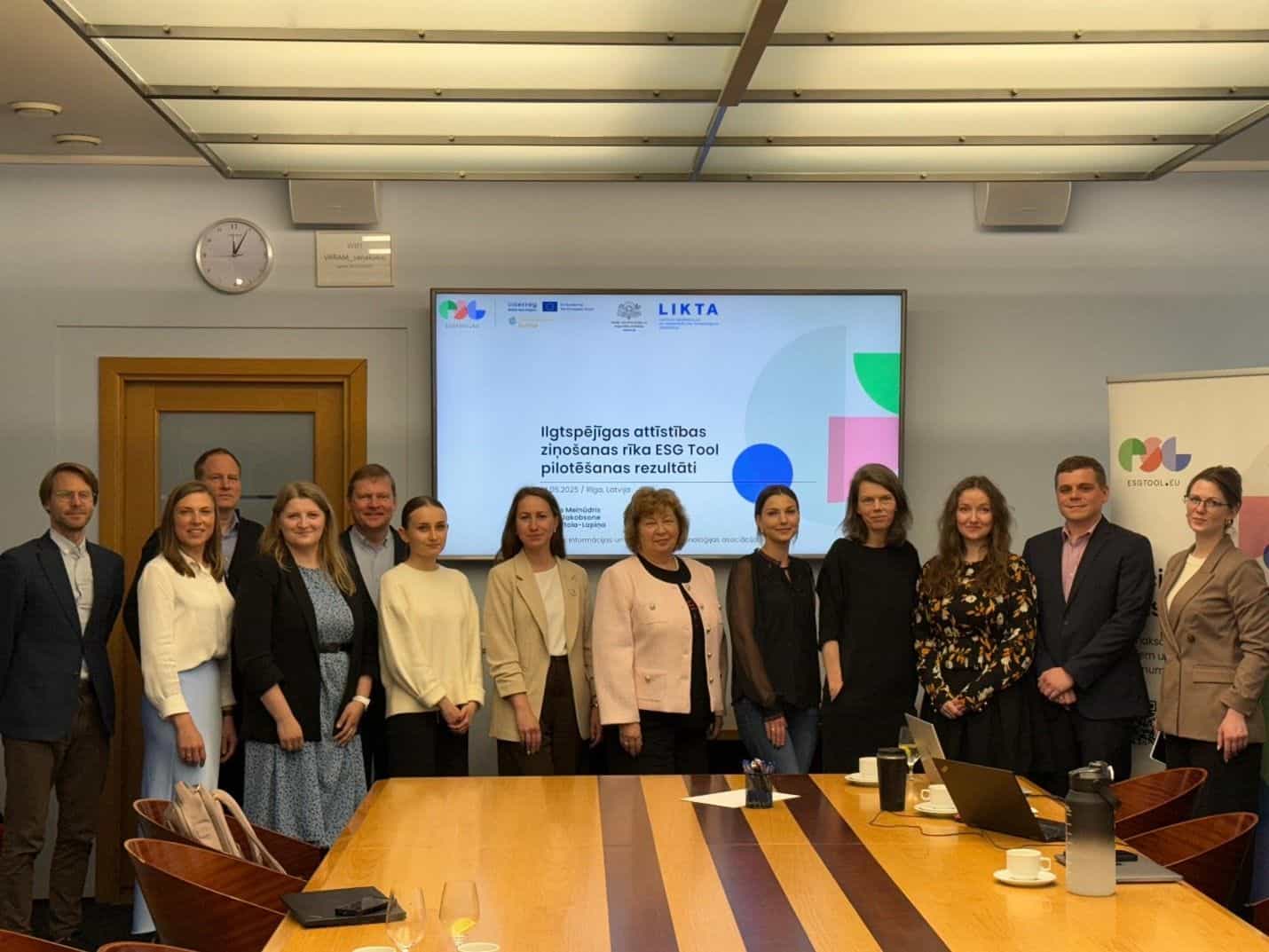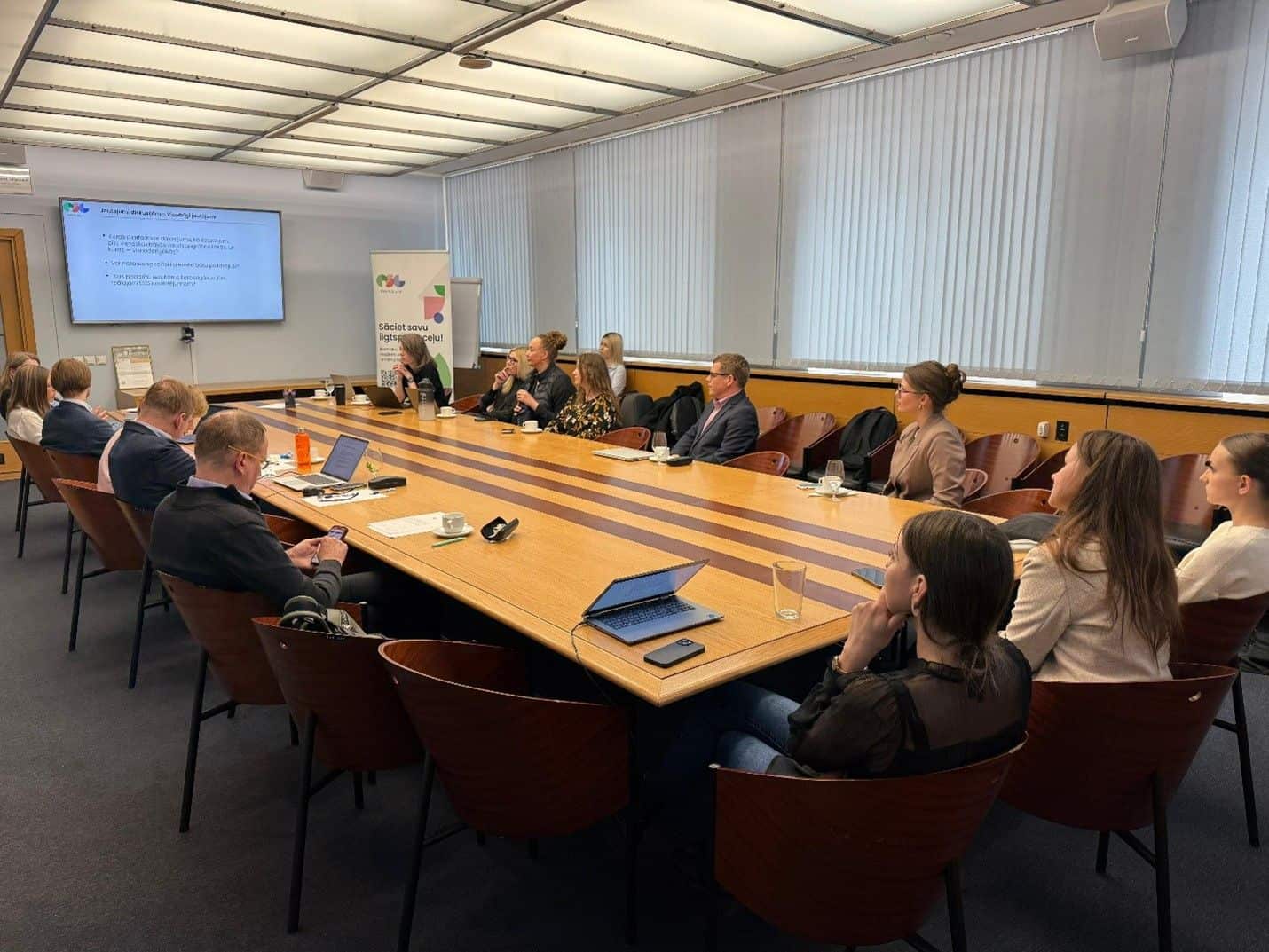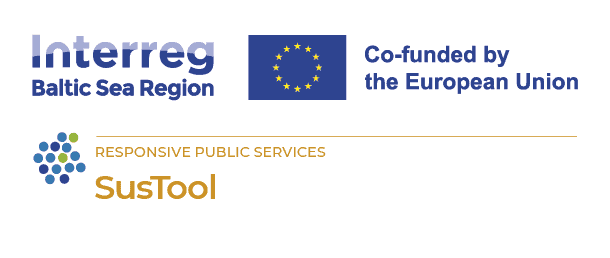
Piloting the self-assessment platform ESG Tool across four countries
11 June 2025
In May, 30 companies across Estonia, Finland, Latvia, and Lithuania participated in a piloting program to test the upcoming ESG self-assessment platform ESG Tool, set to launch in fall of 2025. The pilot involved 9 companies from Estonia, 4 from Finland, 8 from Latvia, and 9 from Lithuania.
Their feedback concerning functionality, user experience, and content relevance has been invaluable in refining the platform into a more intuitive, targeted, and practical tool for businesses of all sizes.
Roundtable discussions were organized in each country, and the consensus was clear: while the ESG Tool is already useful and generally intuitive, there is room for improvement. Users appreciated the multilingual interface and well-structured onboarding, but noted that the terminology can be complex for smaller companies. Additional guidance such as videos, pop-ups, or simpler explanations would make the tool more accessible.
Many users also found stakeholder categorization challenging and requested clearer language. Downloadable summaries were well received, though companies expressed a desire for more concrete action steps and clearly highlighted mandatory data points to aid internal planning and sustainability reporting.
The pilot was coordinated in Estonia by ITL Estonia, in Lithuania by Infobalt, in Latvia by LIKTA and VARAM, and in Finland by DIMECC Oy.
Here’s how one participating company summarized their experience:
“Testing the ESG Tool was a valuable experience for us, and we were glad to be among the first testers. Hopefully, we were able to provide useful feedback on how to improve the user experience to make the tool more accessible for non-experts.
I see great potential in what the ESG Tool can offer in the future, as the platform becomes more intuitive and the scope of topics better aligned with company’s profile, it can become a truly powerful support tool for businesses on their sustainability journey. We’re happy to have been part of the piloting process. Contributions like these help ensure the tool evolves in line with real business needs.”
(Reilika Mikk, SK ID Solutions)
Developed according to EFRAG standards and guidelines, the tool is expected to be finalized by the end of 2025. It will help companies assess their impact across ten sustainability areas: climate change, pollution, water and marine resources, biodiversity and ecosystems, resource use and circular economy, workforce, value chain employees, affected communities, consumers and end-users, and business conduct.
In addition to the assessment tool, the web platform offers descriptions of sustainability reporting standards, general guidance, educational videos, best practice examples, and links to further resources. The tool also provides tailored recommendations for next steps, simplifying the reporting process and improving data quality.
The ESG Tool will be available this fall free of charge in English, Estonian, Finnish, Latvian, and Lithuanian.
This international project is developed in cooperation with public and private sector organizations from Estonia, Finland, Latvia, and Lithuania and is funded by the Interreg Baltic Sea Region.







